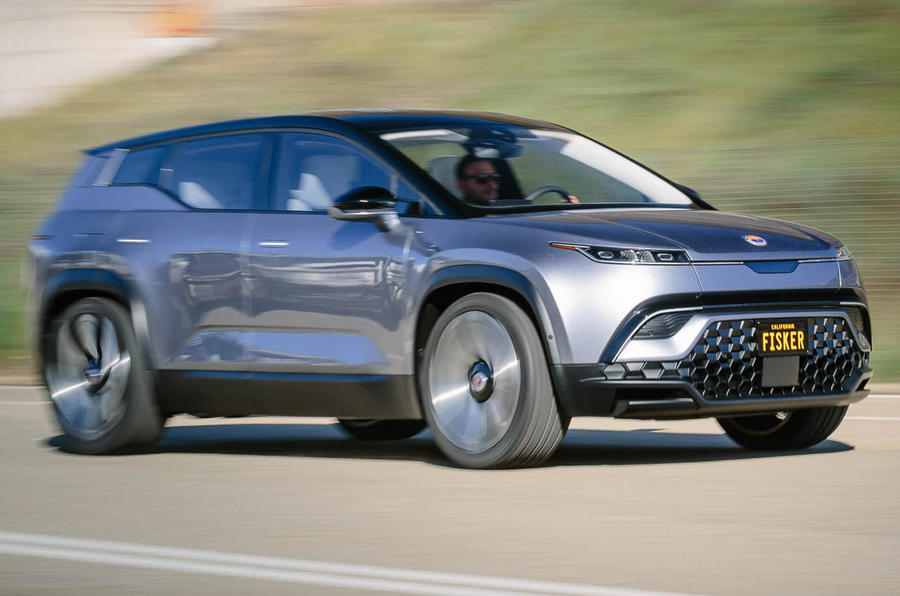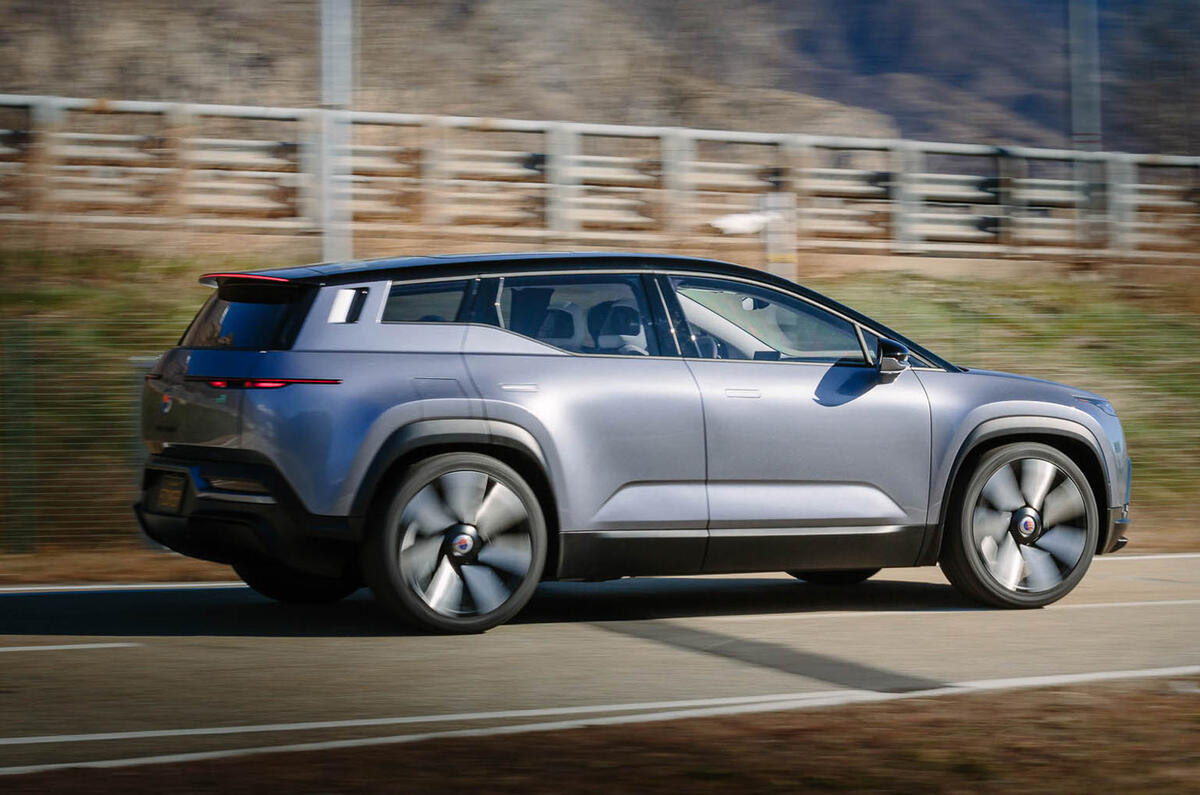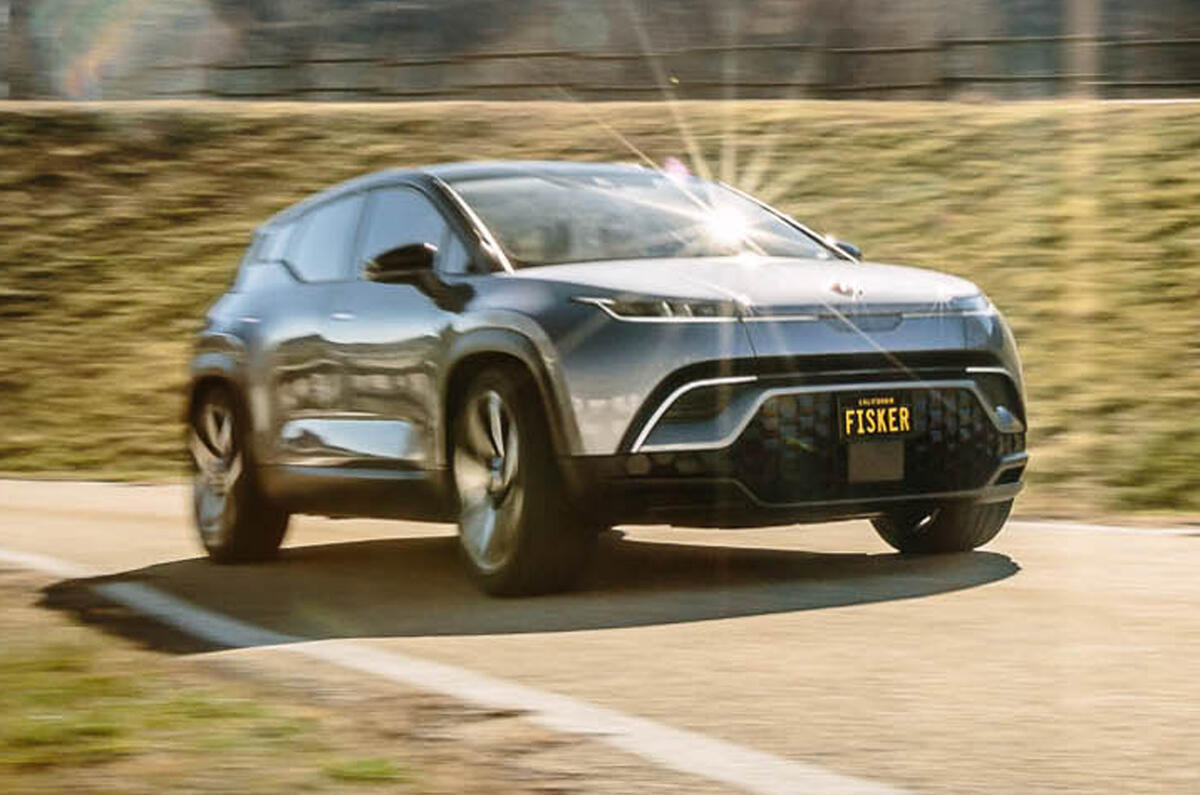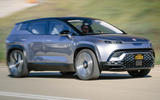American EV start-up Fisker is set go public and float on the New York Stock Exchange by the end of this year, following a deal that has increased its equity to $2.9 billion (£2.3bn).
The company, run by ex-BMW designer and creator of the original Karma range-extender sports car Henrik Fisker, is raising funds to put its Ocean electric SUV into production in 2022. It has agreed a deal with investment firm Apollo Global Management to merge with Spartan Energy Acquisition, a so-called 'blank-cheque' shell company with no assets that's used to raise money through public flotations.
The partnership with Spartan Energy Acquisition, a special-purpose acquisition company (SPAC) and affiliate of investment firm Apollo Global Management, has been approved by both boards of directors, pending agreement from Spartan’s shareholders.
Shares in Spartan surged by 29% when the deal was confirmed on Monday to drive its value up above $1bn (£780 million), giving the newly combined enterprise a value of $2.9bn.
Henrik Fisker said: “Today, the realisation of the world’s first digital car company took another major step forward, advancing our mission to commercialize the world’s most emotional and sustainable vehicles, while upholding our vision of a clean future for all.
“We're excited to partner with Apollo, a world-class financial institution who brings deep industry expertise, extensive global relationships and a shared commitment to ESG. This vote of confidence from investors, coupled with our exciting progress on the development of our first vehicle, lays out Fisker’s path to 2022 and beyond.”
The Ocean is what Fisker calls “the world’s most sustainable car”, featuring recycled materials including fishing nets, T-shirts, bottles and tyres throughout its interior, a solar-panel roof and a 300-mile range from its 80kW battery pack.
Fisker said: "The company has secured a strategic global and localised supply chain, which includes critical components such as batteries. This will result in global manufacturing capacity across the US, Europe and China, with projected production of more than one million vehicles between 2022 and 2027."
The California-based company is also working to develop solid-state batteries, which its claims will allow future EVs to gain 500 miles of charge in as little as one minute.
Fisker's planned flotation is the latest in a flurry of newly listed EV start-ups. Electric pick-up truck maker Nikola made the headlines last month when it hit a value of $22.8bn (£22.6bn) just a week after going public, while shares in Chinese brand Nio have risen 270% so far this year, following its flotation in 2018.
READ MORE
New Fisker Ocean electric SUV revealed with 300-mile range
Nikola Badger: fuel-cell and electric pick-up available to order














Join the debate
Add your comment
As I said, I cannot see that.
As I said, I cannot see that. Please explain more to me in a digestible way that I a mere mortal can understand
lambo58 wrote:
Sorry, I was agreeing with you, not criticising your own understanding. Without some serious tech advances in batteries, chargers and grid infrastructure, 500 mile range in 1 minute will not happen as the existing grid could not deliver it at scale.
Im all for EVs, but 500 miles
Im all for EVs, but 500 miles of charge in as little as one minute.
Somehow I cannot see that. The sheer amount of amps needed to charge a pack in that time?
Hmmm
lambo58 wrote:
Clear lack of understanding of the basic laws of physics. 500 miles range = approx 150kWh. In a minute requires a 9MW charger! About 30 times the current max available (350kW) and over 1000 times the charge rate of a 7kW home charger!